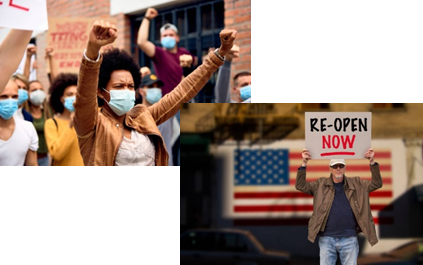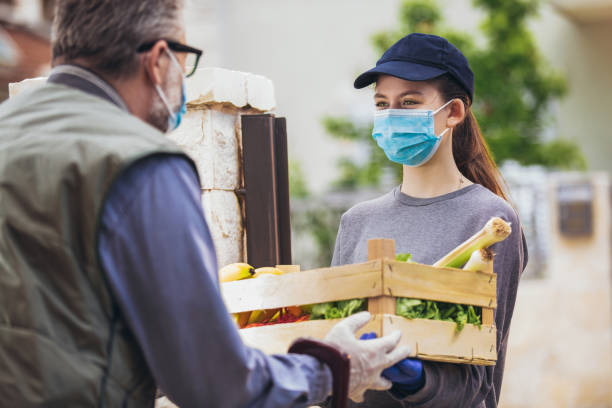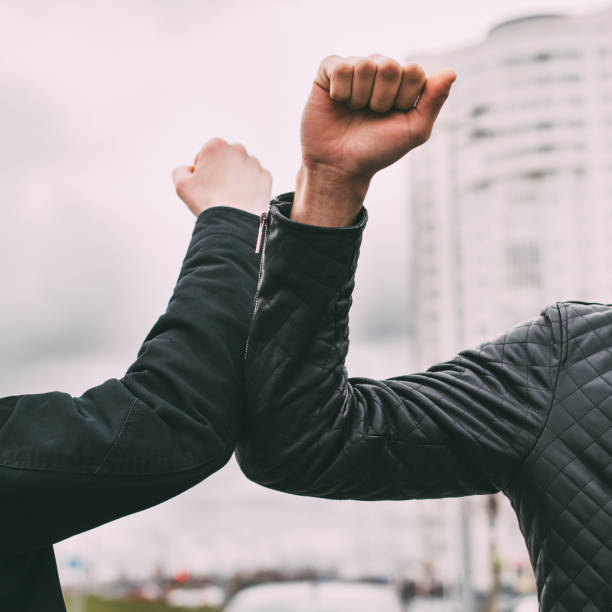
In March, many of us took to our homes blissfully unaware of how long we’d be in the throes of a global epidemic. We believed our children’s schools when they said they would be closed for two weeks. We prepared for a short sprint, not an ultra-marathon, and we were “all in this together” …until we weren’t.
When the dust settles on the aftermath of this Pandemic, many of us will still be dealing with trauma for years to come. While those that have the means have weathered quarantine and social distancing well, millions of people are out of work, sick, struggling to make ends meet, emotionally spent, living in fear and/or working through all the above. Adding a tumultuous presidential election to the mix ensures that no one escapes 2020 unscathed.
It’s helpful to know that we’ve been here before. History doesn’t repeat itself—patterns repeat. Social distancing, stay-at-home orders, mask ordinances, anti-masker protests and a flailing economy are not new. Nor is the racial discord or the concern of declining mental health. Over 100 years ago, we did this all. So why couldn’t we anticipate what was coming in March?
 In 1918, as the world coped with millions of deaths both from a widespread illness and the first World War, it’s no wonder that people wanted to put this tragedy behind them. The devastation of countless orphaned children and childless parents was so traumatic, that no wanted to talk about it after the crisis ended. Even medical professionals on the frontlines rarely documented that time period. And that’s probably why so many of us felt blindsided, unprepared, and fatigued when Covid-19 hit.
In 1918, as the world coped with millions of deaths both from a widespread illness and the first World War, it’s no wonder that people wanted to put this tragedy behind them. The devastation of countless orphaned children and childless parents was so traumatic, that no wanted to talk about it after the crisis ended. Even medical professionals on the frontlines rarely documented that time period. And that’s probably why so many of us felt blindsided, unprepared, and fatigued when Covid-19 hit.
“We have to arrive at the point where the trauma story is told at every hospital, every nursing home, every veterans’ center, every homeless shelter,” said Richard Mollica. author of Healing Invisible Wounds: Paths to Hope and Recovery in a Violent World. “The collective trauma of this virus and its impact on health care workers has to be told.” He argues that this will allow for better care for patients. However, just as importantly, it will provide critical information for future generations of healthcare workers.
Hopefully, the difference between 2020 and the next pandemic will be our collective ability to cope and communicate the trauma we’ve experienced, leaving a blueprint of what to expect. What research has shown is that “Collective memory of traumas… serve as guides for future generations on how to identify a threat and how to respond to it effectively.” When a group experiences trauma, we develop a collective identity and strive to make meaning of extreme diversity. In this work to develop meaning, societies can reestablish a sense of control and bolster their sense of worth. Letting go of this collective trauma is akin to abdicating collective meaning, and acknowledging our collective trauma allows us to carry a lesson from the past to the future.
Collective trauma helps societies develop meaning and social identity: purpose, values, efficacy, and collective worth. Another silver lining is that the effects of cultivating meaning and values may increase as time goes on. Studies show that our memories shift from the painful loss of lives to the long-term lessons we derive from the traumatic event, and it becomes part of our collective identity.
 However, we’re also experiencing the dark side of large divides across political and ideological beliefs. Societal instability and chaos increase intolerance, anxiety, and aggression, which leads to escalating crime and violence. We see examples of that regularly on Social Media and inflammatory news outlets with some people calling for a literal civil war, others flouting mask ordinances, and the rise of Gen Z’s cancel culture, especially around the politics and racial issues.
However, we’re also experiencing the dark side of large divides across political and ideological beliefs. Societal instability and chaos increase intolerance, anxiety, and aggression, which leads to escalating crime and violence. We see examples of that regularly on Social Media and inflammatory news outlets with some people calling for a literal civil war, others flouting mask ordinances, and the rise of Gen Z’s cancel culture, especially around the politics and racial issues.

Fortunately, there’s a growing body of evidence demonstrating that shared pain is a unifying experience. This has been found in both laboratory experiments, as well as studies conducted on communities who have endured a traumatic event. We see it in the flood of donations after a Tsunami, Hurricane, or Earthquake devastates a region. In Covid-19, we’ve seen a spike in news reports of people helping others or going the extra mile for a community. As food lines grow, eviction notices are executed, and job losses climb, our need for compassion and empathy is great. During this time, kindness is trending.
 If we’re able to usher in collective values of inclusivity, equity, and compassion, then we can assign some meaning to this devastating illness that has brought so many personal and collective losses. We can leave a legacy of enlightenment. When the next Pandemic ravages the earth, we will be more informed, evolved, and adaptive enough to weather the storm and finish the race together.
If we’re able to usher in collective values of inclusivity, equity, and compassion, then we can assign some meaning to this devastating illness that has brought so many personal and collective losses. We can leave a legacy of enlightenment. When the next Pandemic ravages the earth, we will be more informed, evolved, and adaptive enough to weather the storm and finish the race together.


Join the Conversation